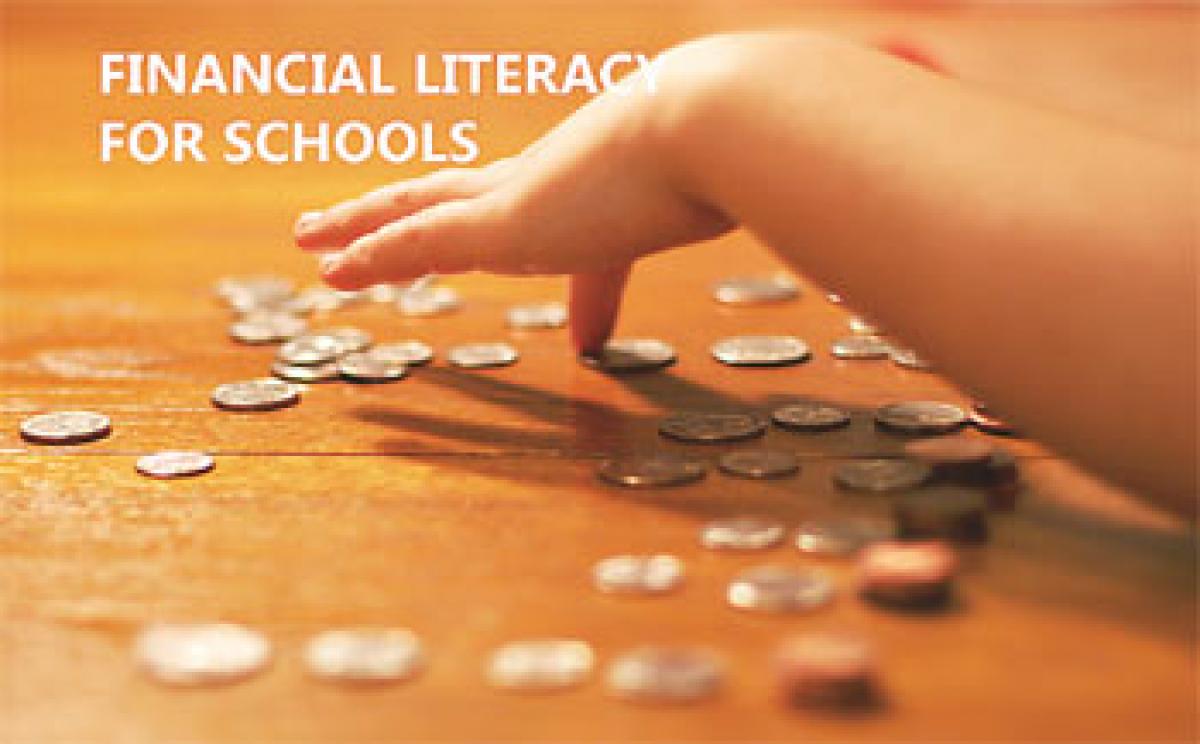Live
- ‘Gully Gang Stars’ review: A gripping tale of resilience and justice
- Train crew suspended for violating speed limit
- Scrap NITI Aayog, bring back Planning Commission: Mamata
- Know your MLA: Satya Prabha continues husband’s legacy with resounding victory
- Dharani Revamp on Cards: CM calls for in-depth study to resolve Dharani lapses
- Huge scam in government ads
- NITI Aayog to focus on ‘Viksit Bharat @2047’
- PM playing petty politics: Oppn
- Jagan government destroyed AP economy says Chandrababu Naidu
- On Kargil Vijay Diwas, Modi hails Agnipath, targets Opposition
Just In

x
Highlights
A recent survey makes public an otherwise worrying inherent trend about the status of financial literacy in India. The survey published this week by S&P (Standard & Poor) puts over 3/4th of the Indian adult population dont properly understand the financial concepts. This is alarming fact considering the govt drive in terms of financial inclusion across the masses.
 A recent survey makes public an otherwise worrying inherent trend about the status of financial literacy in India. The survey published this week by S&P (Standard & Poor) puts over 3/4th of the Indian adult population don’t properly understand the financial concepts. This is alarming fact considering the govt’s drive in terms of financial inclusion across the masses.
A recent survey makes public an otherwise worrying inherent trend about the status of financial literacy in India. The survey published this week by S&P (Standard & Poor) puts over 3/4th of the Indian adult population don’t properly understand the financial concepts. This is alarming fact considering the govt’s drive in terms of financial inclusion across the masses. Part of the problem is with our phobia towards the terminology but most of it is the priority that we assign when it comes to exploring and seeking financial advice. For instance, when it comes to taxation, most dread at the thought of an outflow and consider it as something wrong. So, in the melee to save tax, we exhibit herd mentality and pick a financial instrument that is done by one of our friends or colleagues or relatives irrespective of what it is or how it helps.
The primary motto of tax savings drives to this suicidal behaviour, repenting long after the damage is done.
How many times have we approached for a financial adviser all by ourselves? Would one continue to ignore a persistent headache just by taking pills or consult a physician? Then why is the standard different when approaching for financial consultation?
Financial Literacy is the ability to understand largely on how the money works. In specific, it entails to the knowledge of properly making decisions pertaining to certain personal finance areas like investing, real estate, insurance, taxation, saving and retirement. This doesn’t mean one is required to comprehend the various instruments and modes of the investments.
The survey measured on individuals on their knowledge of four basic financial concepts: numeracy, risk diversification, inflation and compound interest (savings & debt). A person was defined as financially literate when one correctly answered at least three out of the four concepts. Of the questions asked, only 14 per cent of the Indian adults answered the one on risk diversification correctly and just 51 per cent understood compound interest.
On the other hand, 56 per cent answered the question on inflation correctly. The interesting observation is that 27 per cent of adults with a formal loan are financially illiterate while about 39 per cent of formal borrowers are financially literate. The disturbing part is that of the participants’ knowledge of financial products, a mere 14 per cent of Indian adults said they saved with a formal financial institution. Another stark reality is the gender gap and also in the age groups.
In India, the gap between men and women stand at a whopping 73 per cent and 80 per cent being financially illiterate while only 17 per are financially literate in the older age group of 65 years and above. This is not a good sign as this age group forms a large chunk of savers in India. Moreover, with the revised pay commission recommendations, the pensioners get higher disposable incomes and with the lack of awareness in the financial options would prone for more mistakes at an age that’s unsustainable for much course correction.
Financial literacy assumes primacy as it is equally important to earn as to save and invest those earnings. The lack of this mundane information not only paves for wrong judgements but also results in unproductive investment decisions, some of which could never be wriggled out. This also puts the burden on the nation in the form higher social security costs and lower prosperity. The stash being accumulated in the bank deposits by the general public is one such extreme example where the country feels the pinch to diversify into other important channels of investment like infrastructure, etc.
To improve the current situation, a drastic overhaul on our approach to savings and investment has to be made. And most significantly, the financial literacy should be driven in the same fashion as the general literacy. A tweak in the formal education to accommodate the concepts of financial planning needs to be introduced to make for a better and aware generation that could boost the health, wealth and prosperity of the economy.
By K Naresh Kumar
(The author is a practising financial planner and could be reached at [email protected])

Next Story
More Stories
ADVERTISEMENT
© 2024 Hyderabad Media House Limited/The Hans India. All rights reserved. Powered by hocalwire.com







